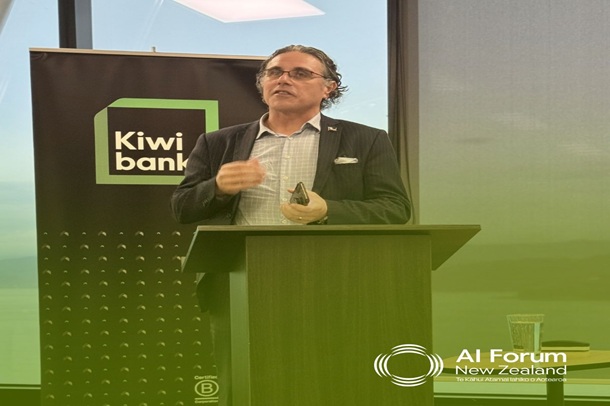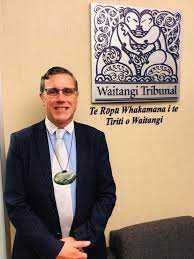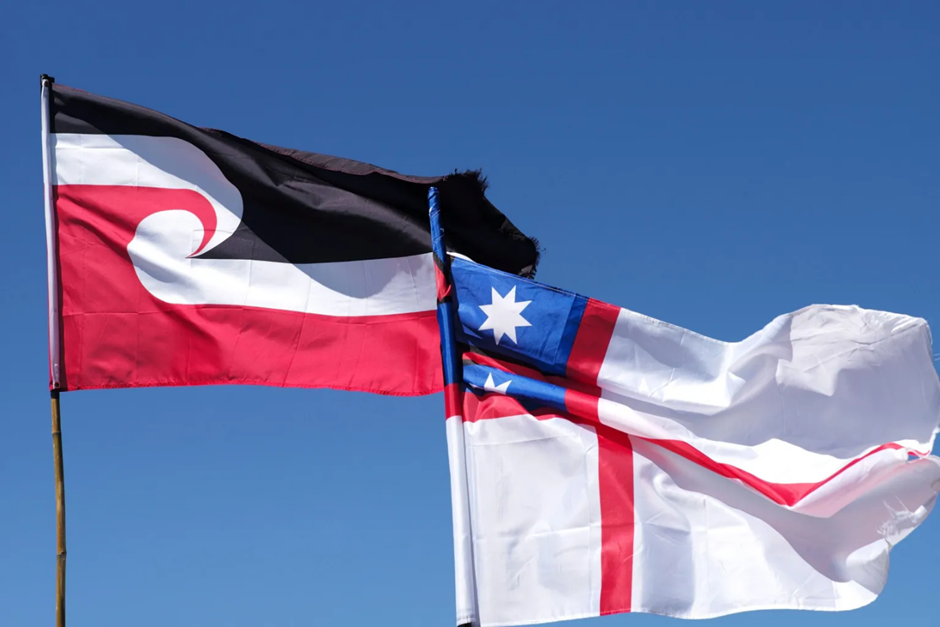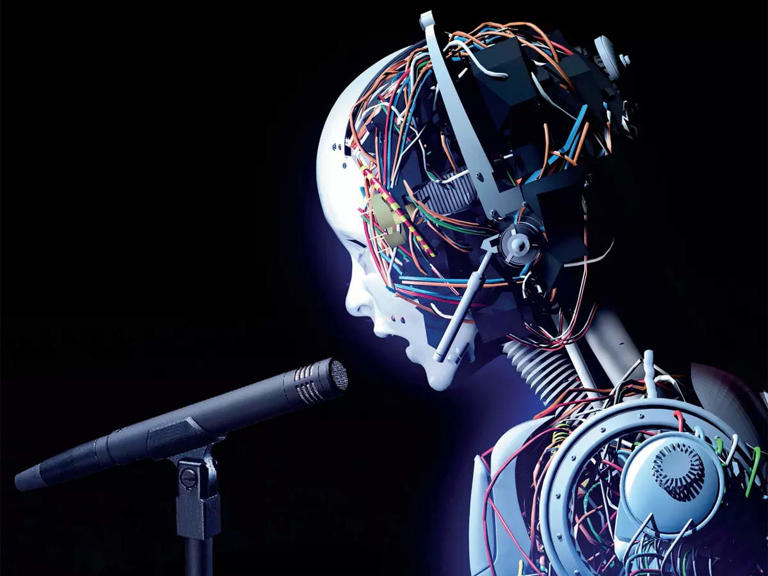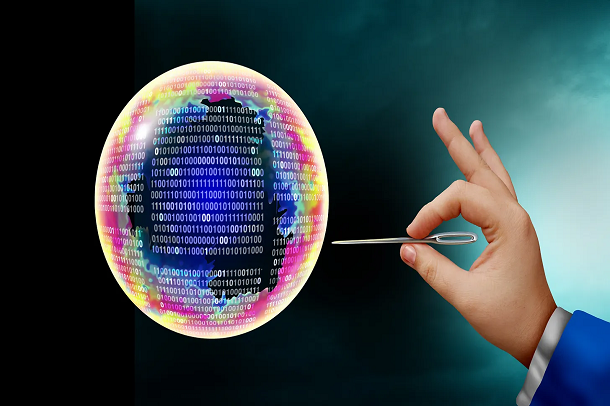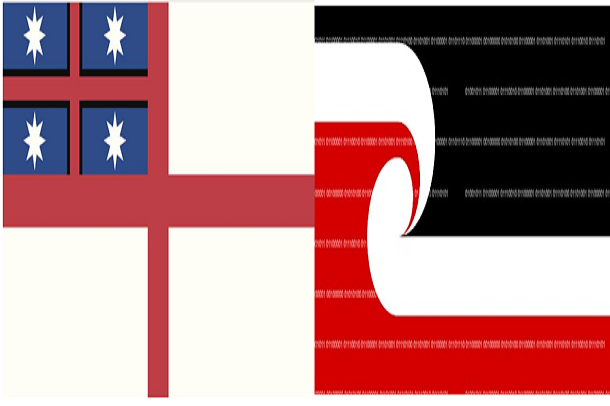The Artificial Intelligence Forum of New Zealand (AI Forum) Te Kāhui Atamai Iahiko o Aotearoa, a purpose-driven, not-for-profit, non-governmental organisation (NGO) funded by members, released their second edition of it’s biannual “AI in Action report Exploring the Impact of Artificial Intelligence on New Zealand’s Productivity.” This edition also for the first time introduced a Te Ao Māori section.
Some key highlights to note include that:
The top five AI applications are Administration, Marketing, Software Development, Project Management, and Design, with generative AI tools like Claude, ChatGPT, and Microsoft CoPilot leading adoption. Note: This reflects later stats in the report that 72% of companies use pre-existing AI solutions, while only 13% use custom-built solutions pointing to the cost and speed advantages of leveraging the existing AI apps and platforms.
Productivity boost 93% of respondents say AI has made workers more efficient.
AI is a cost saver 56% reported AI having a positive financial impact (up from 50%), with 71% acknowledging savings on operational costs due to harnessing AI.
Increased uptake in AI 82% of respondents reported some level of AI use in their organisation, a 15 percentage point increase from the first survey.
Minimal job displacements 7% reporting AI replacing workers, however there is evidence that it is impacting the number of new hires.
Training 73% of respondents reported having received AI training in their organisation suggesting employers are taking seriously the need to upskill the workforce to make the most of AI tools and platforms.
Te Ao Māori
The Artificial Intelligence Forum of New Zealand (AI Forum) Te Kāhui Atamai Iahiko o Aotearoa have an advisory Māori board consisting AI leaders from primarily across businesses, which presently consists of 10 members from a range of diverse iwi and backgrounds.
Last year, community feedback provided to the AI Forum, that was also endorsed by the Kāhui Māori, was to include questions about Māori participation. In consideration of a number of key factors including:
- the Māori economy is estimated to be $30 billion in 2023 (8.4% GDP)
- by 2040 1.2 million people or 20% of the population is estimated to identify as Maori
- that Aotearoa New Zealand’s diverse multicultural country and recognises that our founding constitutional document Te Tiriti o Waitangi has relevance within the AI industry
- research forecasting AI will replace many low skilled jobs that mostly Māori have today, making it an ideal time to focus on developing AI skills that will help drive both career mobility for Māori and better outcomes for businesses – creating a strategic investment in building a more inclusive, equitable, and prosperous Aotearoa New Zealand
The AI Forum agreed to, in its second survey report, to include three questions regarding Māori:
Does your business/organisation include Māori voices in their AI design and / or development process?
- 72,4% No
- 27.56% Yes
Does your business / organisation engage with Māori during your AI design and development process?
- 61% No
- 33.54% Yes to some degree
- 50.6% Yes, to a large degree
In which way/ways does your AI design development process include Māori voices?
- We have Māori employees or contractors in our design and developments teams – 41.54% (27)
- We engage with our Māori customers during our design and development processes – 24.62% (16)
- We engage with Māori organisations during our design process – 29.23% (19)
- In other ways – 4.26% (3) Including: It varies a lot, Supporting resources regarding Maori knowledge in education, I do not know.
The results are promising and shows that where there are gaps that need to be addressed by both Māori (businesses, organisations, individuals, iwi and other collectives) and within the AI industry.
Considering that AI is yet to mature in New Zealand, there is no excuse for Māori to be left out of the AI (r)evolution. They just need to grasp the opportunities now. Again, I will refer to my analogy of being at a crossroads. Māori can turn right to empower and decolonise. Alternatively, they can turn left and continue being negative statistics.
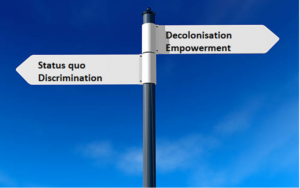
Most notable to me is that while 40% of organisations engage with Māori, of which 50% of businesses and organisations rely on internal staff for advice. This is a common cultural and HR issue that has existed for years. It creates a potentially unsafe workplace for Māori. This is due to companies culturally taxing (sometimes referred to as colonial tax) of their staff. Most times this occurs with only good intentions. Other times it is deliberate.
Not all people with Māori descent speak Māori or were brought up with Māori culture. In fact, they are the minority in tech companies, corporates, and academia.
This does highlight another issue that even organisations who want to engage with Māori, often do not know where to start or who to talk to. With AI, it is even more difficult as Māori make up such a small percentage of the 8% of Māori in tech. Often non AI experts are consulted as they are Māori and the above results are reflective of that.
Meaningful engagement with relevant Māori stakeholders, and continuing to include Māori businesses, organisations, iwi and hapū in decision-making seats, is essential in creating more beneficial commercial and societal outcomes for everyone.
One example is based upon a real-life scenario. AI developers wanted funding for AI sensors within a part of the primary industry. They thought engaging local Iwi was the best solution. Despite this, the local iwi had no financial interests in that primary industry. Furthermore, most of the large economic iwi are not investing in that sector of primary industries. Had they done their research, they would have found that Māori land trusts and Māori businesses in fact make up a significant portion of the industry. They have significant investments that would benefit the AI developers.
To engage properly with Māori and AI developments requires resources to build better relationships with appropriate Māori organisations and widespread long term relationships.
Māori organisations, businesses, hapū, and iwi need to upskill their people. As Tā Apirana Ngata once said, “grasp the tools of the Pākehā tools.” They must acknowledge that AI is both a tool and a weapon. They should learn to capitalise our Māori nations using AI. At the same time, they should seek solutions to protect our culture.

